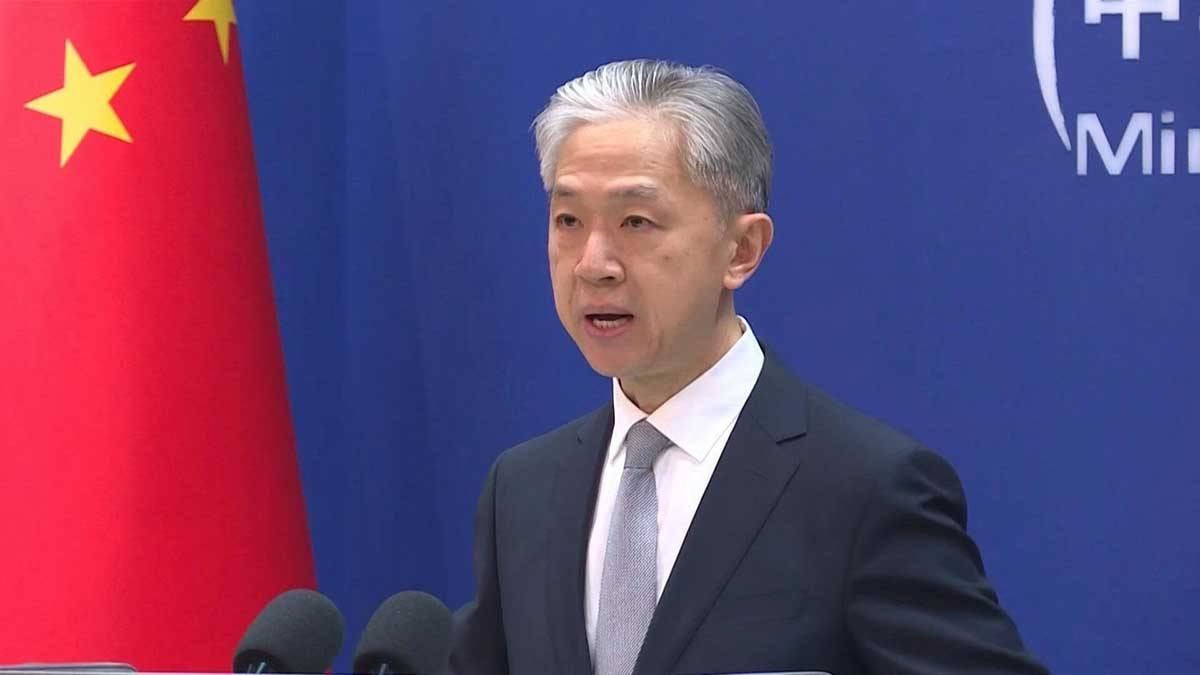China Urges Philippines to Stop Using South China Sea Issue as an Excuse for Disputes
China’s foreign ministry has issued a warning to the Philippines, urging them to cease using the South China Sea (SCS) issue as a pretext to instigate disputes. In a statement released on Thursday, Foreign Ministry Spokesman Wang Wenbin emphasized that the Philippines should not mislead the international community nor rely on external forces to undermine peace and stability in the region.
The statement was made in response to President Ferdinand Marcos Jr.’s remarks following his meeting with German Chancellor Olaf Scholz in Berlin on March 12. Marcos expressed that the Philippines has not rejected any proposal made by China. However, he deemed Beijing’s expansive claim based on its ’10-dash line’ as unacceptable, as it is not recognized by any country or international body. Marcos also highlighted the difficulty in finding a way forward due to China’s territorial premise.
Wang reiterated China’s stance, emphasizing that China maintains territorial sovereignty and maritime rights and interests in the South China Sea, including over Nanhai Zhudao. He stated that China’s positions align with relevant international law and practice, as they are based on the exclusive economic zone, continental shelf, and historic rights in the area.
Wang further clarified that China has never claimed that the entirety of the South China Sea belongs to them. He dismissed the Philippine side’s accusation that China claims all waters within the dotted line as territory, deeming it a deliberate distortion of China’s position. Instead, Wang emphasized China’s willingness to resolve maritime disputes through negotiation and consultation with directly concerned countries.
China has a long-standing historical connection to the South China Sea. Wang highlighted that China was the first country to discover, name, explore, and exploit Nanhai Zhudao. China has continuously, peacefully, and effectively exercised sovereign rights and jurisdiction over the area.
It is worth noting that in the Philippines’ lawsuit against China, the Permanent Court of Arbitration (PCA) in The Hague ruled on July 12, 2016, rejecting China’s U-shaped lines in the South China Sea as the legal basis for its claim. The South China Sea islands, known as Nanhai Zhudao, consist of Dongsha Qundao (Dongsha Islands), Xisha Qundao (Xisha Islands), Zhongsha Qundao (Zhongsha Islands), and Nansha Qundao (Nansha Islands).
President Marcos also clarified that the upcoming trilateral talks between the Philippines, the United States, and Japan are intended to maintain peace in the South China Sea rather than escalate conflicts in the region. The discussions primarily focus on ensuring safe navigation and passage in the South China Sea, a crucial sea route through which 60 percent of international trade passes.
President Marcos emphasized that the Philippines’ objective is to uphold peace in the region during his joint press conference with Czech Republic President Petr Pavel in Prague. When asked about his expectations for the meeting with US Secretary of State Antony Blinken, Marcos reiterated that the discussions aim to strengthen cooperation among the three nations.
These high-level discussions come in response to recent incidents involving Chinese and Philippine vessels in the South China Sea. The Philippines seeks to navigate these challenges diplomatically and maintain stability in the region.







